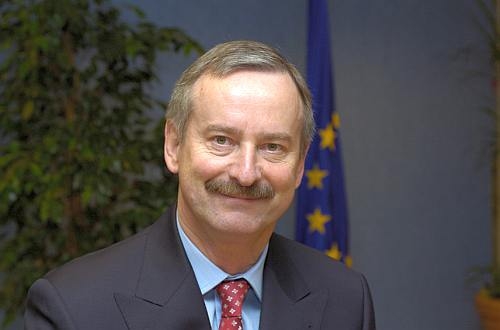The so-called compliance verification clause will allow the EC to block the subsidiaries of vertically-integrated railways from operating in other member states if they have not implemented all possible safeguards to ensure fair competition in their home market.
The draft legislation breaks with the gradual push towards full vertical separation, which the EC has pursued vigorously through three previous railway packages, and supports the retention of the holding company structure, an important concession for member states such as Germany, Austria, and Italy, which have lobbied hard to keep it. Nonetheless, the EC insists that infrastructure managers must be operationally and financially independent from operators and strict "Chinese walls" will be required within such railways to ensure an appropriate level of separation between functions.
The Fourth Railway Package seeks to strengthen the role of infrastructure managers, which will control all functions essential to the operation of the network, including infrastructure investment planning, day-to-day operations and maintenance, and timetabling.
Operators which are deemed to be fully independent of infrastructure managers will be granted full access to domestic passenger markets when they are liberalised in December 2019, another key element of the proposed legislation. Companies will be allowed to offer competing commercial services or to bid for public service contracts, which account for over 90% of rail journeys in the EU and will become subject to mandatory tendering.
Certification will also be simplified under the new legislation, which will give the European Railway Agency (ERA) authority to issue EU-wide vehicle authorisations and safety certificates for operators. The EC argues centralising rolling stock approvals will allow a 20% reduction in the time it takes a new operator to enter the market and will also reduce the cost and duration of rolling stock authorisation by 20%, generating savings of up to €500m for the industry by 2025.
"We have the opportunity to create a truly European railway network which actually works, and alongside that an internal market for rail with common standards and far fewer barriers to competition," says European transport commissioner Mr Siim Kallas (pictured). "Trains would be able to run freely from Rotterdam to Genoa, from Paris to Bratislava, and from Warsaw to Marseille."
The Community of European Railways and Infrastructure Managers (CER) welcomed the proposals for greater efficiency in certification of operators and rolling stock, but says it "cannot support the disproportionate measures regarding separation between infrastructure managers and railway undertakings," arguing that existing European legislation contains sufficient safeguards against anticompetitive practices.
The proposals must now be approved by the European Parliament and Member States before being adopted.

